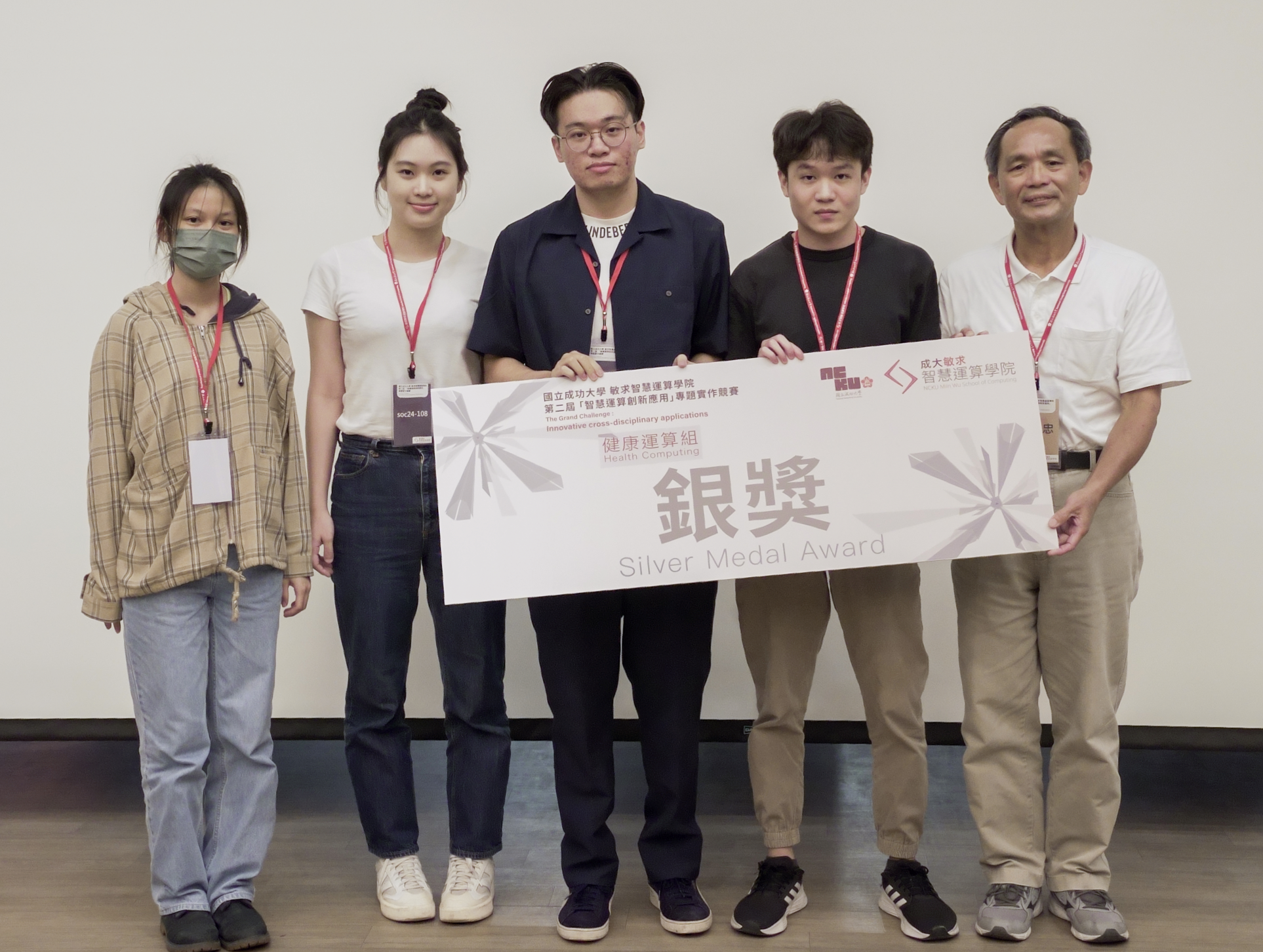Intelligent Computing × Neuroinformatics
- Published on
- Author
- 魏彣芯

Artificial intelligence is rapidly reshaping our understanding and application of the human brain. Since joining the Department of Computer Science at National Yang Ming Chiao Tung University (NYCU) in 2019, Professor Chun-Shu Wei has been dedicated to interdisciplinary research that bridges intelligent computing and neuroinformatics. His work integrates AI and brain-computer interface (BCI) technologies, with deep learning at its core. By analyzing electroencephalogram (EEG) signals with precision, his research aims to develop more efficient and accurate non-invasive BCIs and neurotechnology applications.
Professor Wei has demonstrated outstanding research performance. Since joining NYCU, he has published seven Q1 journal articles, three Q2 journal articles, one paper at a top-tier international conference, and five other significant international conference papers. He has also been invited to contribute to the organization of international academic events, such as serving on the IEEE SMC Technical Committee on Brain-Machine Interface. In addition, Professor Wei actively promotes international collaboration, engaging in joint research and co-advising students with institutions such as Stanford University, UC San Diego, the University of Essex (UK), and the University of Technology Sydney (Australia). His involvement in the IEEE SMC Brain-Machine Interface Technical Committee continues to enhance NYCU's global visibility and influence in the field of intelligent neural technologies.
In addition to his remarkable research achievements, Professor Wei and his team are also pioneering applications in AI-assisted psychiatric diagnosis, personalized treatment, and EEG analysis through industry-academia partnerships with clinical institutions.
AI Interprets Brainwaves: Revolutionizing Psychiatric Diagnosis
In collaboration with Kaohsiung Medical University Hospital, Professor Wei's team has trained an innovative AI model—a multi-branch deep neural network—using clinical EEG data. This model has successfully increased the diagnostic accuracy for schizophrenia to 84%, effectively distinguishing patients from healthy individuals and opening new avenues for psychiatric diagnosis. Beyond accuracy, the team has incorporated saliency map techniques to visualize the EEG features used by the AI in its decision-making process. This approach demystifies the AI's diagnostic rationale, making its judgments more transparent and understandable. By presenting disease-specific features intuitively, the system provides clinicians with objective biomarkers, showing strong potential as a next-generation AI-assisted diagnostic tool.
Personalized TMS Therapy: Breaking Through Depression Treatment Barriers
In the realm of psychiatric treatment, Professor Wei's team is also focused on overcoming the limitations of current therapies. In partnership with Cheng Hsin General Hospital, the team is advancing non-pharmaceutical treatments for treatment-resistant depression—specifically Transcranial Magnetic Stimulation (TMS). They have developed a novel method called phase-synchronized TMS, which integrates real-time EEG monitoring to track and analyze patients' brain states. This innovation addresses the lack of individualized parameters in traditional TMS protocols, enabling personalized timing and intensity for stimulation. The result is improved treatment response and stability, paving the way for personalized mental healthcare.
A New Era in Deep Learning: Breakthroughs in Geometric and Cross-Domain Alignment Models
Professor Wei's team continues to push the boundaries of AI methodologies. They proposed the MAtt (Manifold Attention Network) model, which leverages Geometric Deep Learning and attention mechanisms on Riemannian manifolds to enhance classification accuracy for SSVEP and motor imagery EEG signals. This work was recognized at NeurIPS 2022, one of the world's top AI conferences.
In collaboration with the U.S.-based neurotechnology company Arctop, the team also developed the SSVEP-DAN model, which significantly reduces the calibration data required for BCI applications while improving accuracy by 25%. This achievement was published in IEEE Transactions on Neural Systems and Rehabilitation Engineering (TNSRE) in 2024, underscoring its practical application potential.
Democratizing Neuroinformatics Research: The XBrainLab Platform
To make neuroinformatics research more accessible, the team launched XBrainLab, a platform that integrates deep learning, explainable AI, and agent-based user interfaces. It offers researchers a one-stop solution for EEG data processing and model analysis, lowering the technical barrier and enhancing research efficiency.
Centered on AI, Professor Chun-Shu Wei's interdisciplinary innovations in intelligent neurotechnology not only yield prolific academic results but also actively drive clinical applications in diagnosis and treatment. His work exemplifies the boundless potential of AI to shape the future of mental health care and brain-computer interface development.
